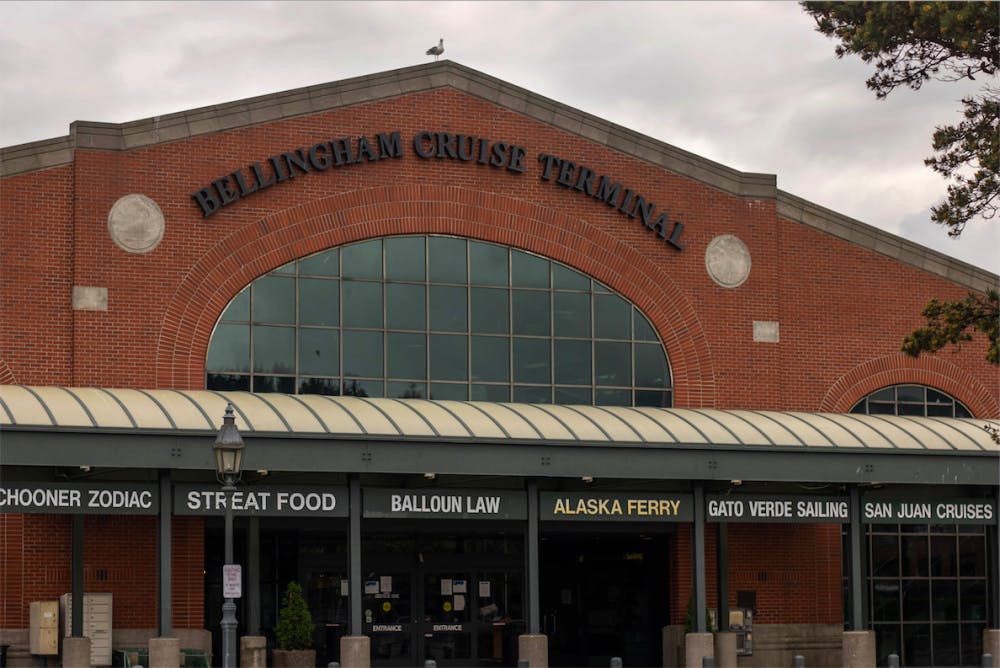
With snow-capped mountains, miles of trails and bayside views Bellingham has established itself as a hub for tourism in the Pacific Northwest. But Gov. Inslee’s “Stay Home, Stay Healthy” order and his new four-phase COVID-19 recovery plan has halted the Bellingham tourism industry and created serious economic impacts.
In 2018, there was a total of $705.7 million in travel spending within Whatcom County, according to a report from Bellingham Whatcom County Tourism. That total includes money spent on food, retail sales, recreation, travel, lodging and gas.
The same report showed that tourism within the county created 6,910 jobs in 2018 and generated $174.9 million in local earnings.
During phase one of Inslee’s plan, which began on May 5, only essential travel is allowed. Since then, the Port of Bellingham, which manages the Bellingham airport, multiple local parks and seaports, has seen a sharp decrease in the number of travelers.
In March, there was a 43% decrease in the number of passengers using the Bellingham airport compared to this time last year according to Mike Hogan, the public affairs administrator for the Port of Bellingham.
The Port expects to see a 96% decrease in passengers during April and May because of the “Stay Home, Stay Healthy” order, Hogan said. He explained that the airlines have reduced scheduled flights into the Bellingham airport from an average of 11 per day to one a day.
Alaska Airlines is required to maintain a minimum level of scheduled flights to qualify for funding from the CARES Act. While Allegiant Airlines has been given a waiver to not schedule flights because of the Canadian border closure, Hogan said.
The Alaska ferry, which travels to Bellingham, has also been impacted by COVID-19. The ferry shut down because of a mechanical failure on Jan. 26 and repairs have since been delayed because of the virus. It’s expected that the ferry will be operational in late June, according to Hogan, but the Port cannot verify an exact date.
On March 21, the Canadian border was closed to all nonessential travel. Which includes individuals traveling for tourism purposes such as sightseeing, recreation, gambling or attending cultural events.
While there is no specific data for Washington state, it is reported that there are now 452,961 fewer nationwide border crossings from the U.S. per day, a decrease of about 56% from the average number of crossings according to Jason Givens, a public affairs specialist for U.S. Customs and Border Protection.
John Wargowski, a third-year student at Western, was planning an annual trip to Vancouver with a group of friends in early March before the restrictions were in place. The group ended up canceling the trip just days before the border closure was announced. Although he felt disappointed about having to cancel, Wargowski said he felt it was necessary.
“The way I see it, it seems obvious. Duh, my vacation plans are canceled, there’s a pandemic happening,” Wargowski said. Currently, Wargowski worries that there aren’t enough restrictions in place to prevent the spread of COVID-19 in Bellingham.
“Protecting public health and safety is the number one priority but restoring our economy and getting our businesses back open safely is also what we’re working towards,” Hogan said.
Since the “Stay Home, Stay Healthy” order, the Port has taken several measures to ensure the safety of its staff and the community.
All port offices have been closed so employees can work from home and any on-site employees are protected with personal protective equipment, staggered scheduling and increased sanitation measures. High-traffic areas, like the Marine Life Center, pump track, playgrounds and picnic shelters, have been closed off to the public.
Similar measures have been taken by U.S. Customs and Border Protection.
“[Customs and Border Protection’s] dedicated agents, officers and mission support personnel are working tirelessly to protect America’s borders, slow the spread of the virus and facilitate the cross-border flow of food, medicine and other essential commerce,” Givens said.
The agency has moved many employees to remote work, provided personal protective equipment to front line staff and has issued sanitary guidance to all its facilities.
In the long-term, Hogan acknowledged that it could be years before the Bellingham tourism and travel industry sees a full recovery. To help stimulate the economy, Hogan said the Port is looking into infrastructure and construction projects that would create jobs in the community.
Sandy Ward, the president and CEO of Bellingham Whatcom County Tourism, acknowledged that a full recovery will take time, but remained optimistic about the future.
“Road trips will be one of the first forms of travel to return, and Bellingham’s in a really good place for those,” Ward said.
As communities return to normal and tourism begins to increase, some experts are calling on the public to reconsider their travel habits.
Jonathan Day, an associate professor of hospitality and tourism management at Purdue University, thinks communities can use this time as a “pit stop” to reevaluate what responsible and sustainable tourism looks like.
“We need to be thinking about the environment, but not at the exclusion of businesses getting back on their feet or protecting the public. These things don’t have to be a trade-off, they can be part of the same strategy,” Day said.
Some strategies Day highlighted included businesses using eco-friendly sanitizing products, travelers supporting local economies and following the travel care code.
Locally, Hogan said the Port is encouraging residents to use the resources posted on its website and read the updates they provide.
“We’ll still be here when it’s time for people to visit, but for now we want people to stay safe at home,” Ward said.





